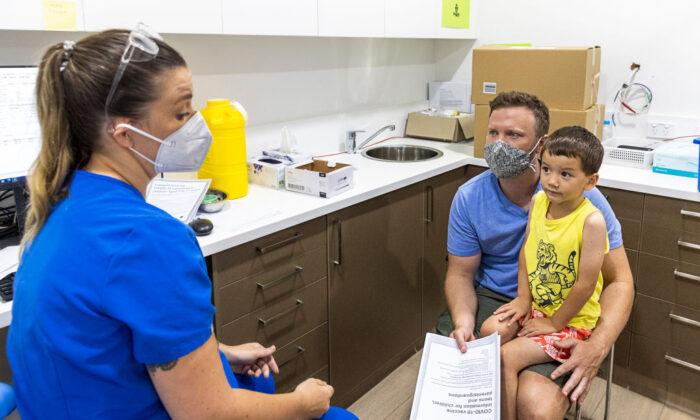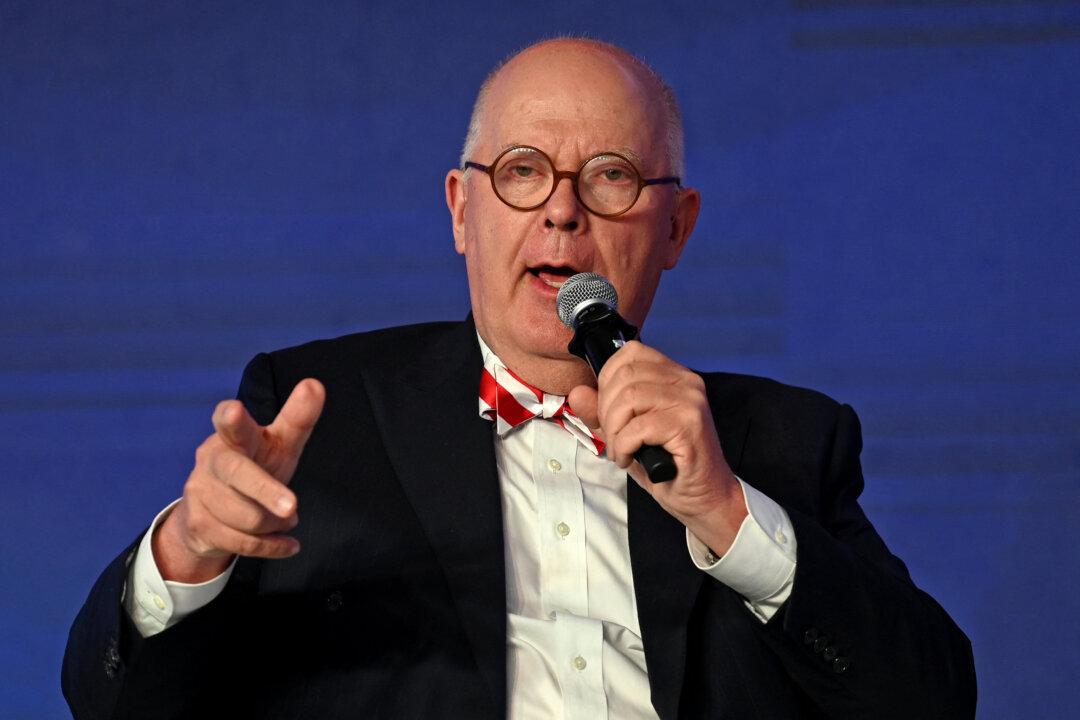A leading authority in infectious disease has called for Australian state governments to remove mask rules for school students in the classroom as the jurisdictions proceed with relaxing indoor mandates.
Many states across the country have taken action to ease mask mandate in indoor venues, except for some high-risk environments like hospitals, aged care and public transport.
Robert Booy, a University of Sydney professor who was the head of clinical research at the National Centre for Immunisation Research and Surveillance from 2005 to 2019, said the removal of mask mandate should extend to school students.
“Why should children have to bear the brunt of public health control of the virus? They have already missed weeks, and even months of school,” he told the Nine Network on Feb. 24.
“Take the masks off. If you are taking them off at workplaces, take them off in schools.”

Australia is the first country in the world to permit health professionals to administer the Moderna vaccine for the age group, with health officials saying that the second COVID vaccine option would help drive up children’s immunisation rates.
Children will need to take two doses of the vaccine with an interval of eight weeks in between. The children’s dosage for Moderna, which is similar to the Pfizer vaccine, will be half of that for adults.
However, health professionals can administer the second dose as early as four weeks from the first in certain situations, such as when a child has a weakened immune system.
The federal government approved the Pfizer vaccine for children aged five to 11 in January, and since then, nearly 50 percent of the age group has taken one dose.
Meanwhile, Aged Care Services Minister Richard Colbeck has called on more Australians to return to aged care facilities to visit their family members as COVID-19 restrictions on visitors to health services start to ease.
Colbeck has reiterated calls from leading peak organisations in the healthcare industry.
“Personal contact is vital to maintaining the social, emotional and mental wellbeing of residents, reducing their social isolation and loneliness,” he said.
“We are also aware of the significant stress on a resident’s loved ones due to the extended restrictions over the last two years and new guidance means that visits can become more frequent and supported.”





